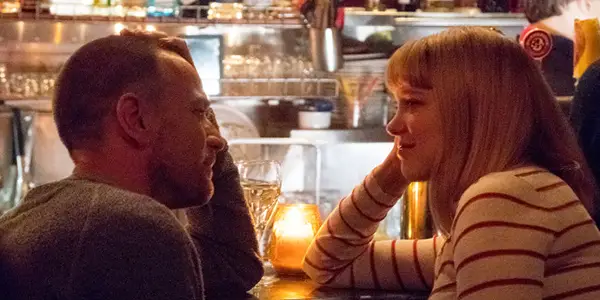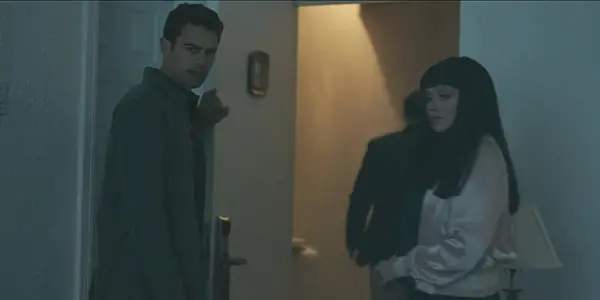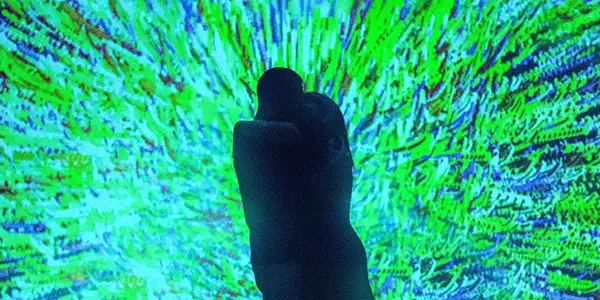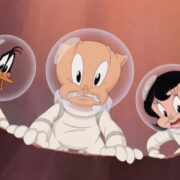ZOE: All-Too-Familiar A.I. Story Partially Saved By Talented Cast

David is a film aficionado from Colchester, Connecticut. He enjoys…
The idea of artificial intelligence is nothing new, having been hypothesized by science fiction writers for centuries. Yet, with new advanced technology getting ever-closer to making some of these ideas a reality, films and TV featuring AI have become even more prominent. Some notable entries in the past few years include Her, Ex Machina, the TV show Westworld, and episodes of Black Mirror.
From its outset, Zoe resembles nearly every all of these AI entries, and it never really challenges itself to go beyond them. Yet, lifted by the charisma of Ewan McGregor, Léa Seydoux, and Theo James, and held together through the tight direction of Drake Doremus, it is not an altogether regrettable venture.
Setting the Pieces
Zoe takes place in a world where AI (known as synthetics) are already quite popular, utilized mostly as household assistants. Yet, Cole (McGregor), a scientist, wants to create something even more developed: a synthetic that not only fully resembles a human, but is also capable of real emotion, including love. This leads to the creation of Ash (James), a handsome, smooth-talking prototype that will hopefully be the first in a line of new synthetics to come.
Another reason for Ash’s existence, though, is the lack of love that currently occupies this world. People regularly take a drug called Benysol, which, when taken synchronously with someone else, reproduces the feeling of falling in love for the first time. Add to the mix a tried-and-failed relationship between Cole and Zoe (Seydoux), an assistant at the synthetics lab, and you have all the makings of a romantic disaster.

There are, not surprisingly, some twists that come during Zoe, which are not too difficult to figure out (but which I won’t spoil anyways). They follow on the back of nearly every AI entry, since the idea of just what it means to have a developed consciousness is often at the forefront of these films. Yet, despite its resemblance, this is also a slight detriment to Zoe, since, once the twist is revealed, you can see the ending coming a mile away.
Not much more is peeled back as the film progresses; with a relatively standard, and somewhat lethergically-paced story unfolding. The world in which these characters live, for example, doesn’t fully feel lived in or expanded upon, which makes the central story feel of little consequence. An example is the idea of Benysol, the drug that gives people the feeling of falling in love. Such an idea could be seen as the potential future of online dating, yet it isn’t fully delved into, with its detriment to a person’s psyché only partially examined. Perhaps, though, we don’t need much more than what director Drake Doremus is willing to show us.
Characters and Romance
The potential saving grace of Zoe is the chemistry between two of our central characters: Ewan McGregor‘s Cole and Léa Seydoux‘s Zoe. McGregor, in the meticulous manner of a man of science, still imbues a strong charm into his character, while the sultry Seydoux, who I’ve always felt is one of the more talented young actresses out there, has an undeniable appeal in her quietly-mannered performance. Together, the two make a fitting pair, which easily becomes the highlight of the film as a whole.

As a contrast, Theo James‘ character is much more under-realized, which is unfortunate given the potential that his character has. In actuality, the film seems much more concerned with the romance of Cole and Zoe than in developing James’ Ash further, with long stretches of his character’s absence soon making this evident. Also, keep an eye out (really, blink and you might miss her) for Christina Aguilera playing a synthetic, in a subplot that is soon forgotten as the film progresses.
Pleasing Aesthetics
Zoe is also embellished with a futuristic, eye-catching aesthetic by cinematographer John Guleserian, which is mostly infused into the romantic scenes between Cole and Zoe, showing them lit up by bright yellow and orange hues. It’s never quite as breathtaking as a film such as Blade Runner, feeling much more intimate as a whole, though there are some impressively-executed sequences, such as one where they are surrounded by a multicolored screen that animates the volume of their voices, resembling those old Windows screen savers blown to immense size.

Scenes like this, coupled with Dan Romer‘s mostly ambient-laden score, help to keep the film moving along during some of its more melancholy sequences. They express the devotion and care that was clearly put into Zoe by its crew and director Drake Doremus, at least on the aesthetic side, yet ultimately it’s still not quite enough.
Overall Takeaway: Zoe
Zoe’s detriment, as mentioned, is not necessarily any of its individual parts, such as its cast, cinematography, score, or direction. It’s that, despite all of this, they don’t quite add up to anything more impactful or memorable. With AI becoming more prominent in recent years, Zoe had to do something truly special to standout amongst the bunch. It lacks neither the intelligence of a film such as Her nor the provocativeness of a film like Ex Machina.
Ultimately, Zoe is nothing more than a film that you might get some amusement out of in passing but likely forget about not long after. And, well, if that’s all you’re looking for, then you’ve come to the right place.
What are your thoughts on Zoe? Have AI films become too common in recent years?
Zoe was released on Amazon on July 20th, 2018.
Does content like this matter to you?
Become a Member and support film journalism. Unlock access to all of Film Inquiry`s great articles. Join a community of like-minded readers who are passionate about cinema - get access to our private members Network, give back to independent filmmakers, and more.
David is a film aficionado from Colchester, Connecticut. He enjoys writing, reading, analyzing, and of course, watching movies. His favorite genres are westerns, crime dramas, horror, and sci-fis. He also enjoys binge-watching TV shows on Netflix.













